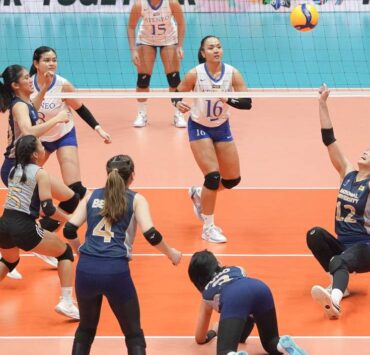James Leonard Tagle Gordon Sr.: A life of service and sacrifice

Today is the 58th death anniversary of my father James Leonard Tagle Gordon Sr. It doesn’t feel that distant—he remains with me, always. Words like “sana (what could have been)”, or “sayang (what a waste)” were never part of his vocabulary.
Born to an American father, John Jacob Gordon, and a Filipino mother, Veronica Tagle, my father inherited a legacy of leadership. His maternal grandfather, Colonel Jose Tagle, was the first Filipino leader to secure victory against Spain at the Battle of Imus on Sept. 2, 1896. While his brothers chose American citizenship, my father chose to remain Filipino, embracing the responsibilities and challenges that came with it.
During World War II, despite raising a young family with my mother, Amelia, and their two children, he never hesitated to fight for his country. As a lieutenant of Filipino guerillas, he bravely resisted the invaders and was posthumously awarded the US Congressional Gold Medal of Valor in August 2019 for his wartime service.
Though my parents didn’t have a college education, they persevered. The war took their home and my grandfather’s business, but my parents rebuilt them tirelessly. They started a cinema, five restaurants, a supermarket, a piggery, among other ventures, ensuring that all their children could complete their studies.
My father was never a bystander. He became a pivotal leader in Olongapo during its US-administered years. Olongapo was the last municipality to achieve independence from American control in 1959. However, instead of allowing elections, municipal officials were appointed, leading to a lot of corruption and crime. My father fought against this and, in 1963, became the first elected mayor of Olongapo.
In 1966, he successfully lobbied for Olongapo to be declared a city. He likewise managed to curb crimes such as illegal logging and smuggling in the military base. He launched a campaign against corrupt members of the Philippine Constabulary and the police and filed cases against them.
His courage came at great cost, as he was targeted for political and personal harassment by his powerful enemies. He survived multiple assassination attempts: a grenade attack on July 4, 1965, another grenade attack during a fire on Aug. 4,1966, and arson on our home in Quezon City on Nov. 1, 1966. Despite the risks, he remained steadfast.
Tragically, on Feb. 20, 1967, at the age of 50, he was assassinated. He never saw his grandchildren. He was shot from behind at the lobby of Olongapo City Hall—a victim of treachery. The suspect was an escaped inmate of the National Penitentiary. This detail reveals a dark truth about politics in our country: detained and escaped prisoners were being used as assassins, providing a convenient alibi for those who masterminded the crimes. The people behind his death were never brought to justice, despite my appeals to the Department of Justice.
I left my lucrative job at P&G, became a lawyer after his death, and started a lifelong campaign against injustice. His death became the driving force behind my advocacy and fight against crime, corruption, and injustice.
Some might say, “Sana or sayang, he could have stayed an American citizen,” avoiding the struggles and risks of being a guerilla, an anti-corruption activist, or a defender of the people. But my father’s choice to remain Filipino defined his legacy—a legacy of courage, sacrifice, and dedication to our nation.
RICHARD J. GORDON

















